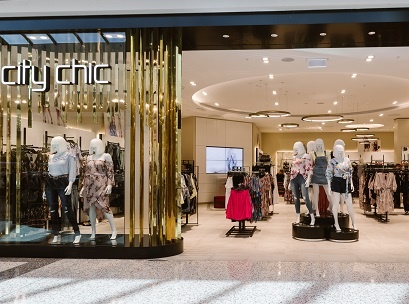The US retail market has tempted a number of Australian retail brands but success and profits have proved to be elusive for most of them. While operational costs, including rents and wages, look attractive on paper, most Australian retailers have come to grief. The failures arguably resulted from a lack of understanding of the market and American consumers, decisions on locations, local management shortcomings, under-funding of the ventures in marketing and brand development, and problematic sup
supply chains.
The casualties include Country Road, Peter Alexander, Koala Blue, Michael Hill Jewellers, Billabong and Quiksilver.
Takeovers and heavy writedowns
The failed attempts by Country Road and Peter Alexander led to both the chains being taken over by new owners, the South African retailer Woolworths Holdings and Premier Investments respectively.
Plunging fortunes in the North American retail market also led to ownership and control of the iconic surf brands Quiksilver and Billabong moving offshore from Australia to the US.
Michael Hill Jewellers has taken heavy writedowns on its accounts exiting the US but remains optimistic about building its business in Canada.
Peter Alexander’s foray into the US market, like Country Road’s, invested heavily in the store fit-outs but failed to enthuse American consumers.
Arguably, Peter Alexander would have been better to resist the lure of the US and venture into Japan or South Korea, where young consumers would have seemed more likely to have been attracted to its sleepwear ranges.
It is interesting to note that Premier Investments, the new owner of Peter Alexander, has not taken the brand outside Australia and New Zealand and is focusing its global expansion for its Smiggle chain on Europe and Asia and not the US.
It works for Cotton On
While success stories for Australian retailers in the US have been relatively few, the Cotton On Group has defied the gloom and currently has more than 150 stores as well as brand distribution with leading US retailers.
The Geelong-based Cotton On is Australia’s largest global retailer, with 1400 stores in 18 countries, and generates more sales in global markets than it does at home.
Cotton On has eight retail brands, and its international success has been driven by having one of the leading supply chains in Australia.
While Cotton On has been prepared to develop a store network in the US, three other Australian retailers are taking a more cautious approach to market entry using online platforms.
Last week, City Chic, the plus-size fashion brand carved out of the Specialty Fashion Group, successfully bid US$16.5 million ($24.4 million) for the e-commerce assets of Avenue, which has been closing its bricks-and-mortar stores under court instructions following its financial collapse.
Specialty Fashion Group sold off its struggling retail brands to Noni B after an operational review and changed its trading name on the Australian Securities Exchange to City Chic Collective.
The company believed the City Chic brand, which has 104 stores in Australia and New Zealand, had significant potential for profitable growth in the local market and in the US, where it has used Amazon as a sales platform and has brand distribution in Macy’s and Nordstrom.
The acquisition of Avenue’s e-commerce business will enable City Chic to expand into new segments in the US plus-size market, which is estimated to be worth US$25 billion ($37.1 billion) annually, and reach new customers. While City Chic plans to operate the website independently, it will apply its leaner operating and customer-centric model to return the brand to profitability.
Online partnerships
Forever New has just launched a US website, branded under its North American trading name Ever New, following the success of its brand partnerships with Nordstrom.com in 2018 and expansion into bricks-and-mortar stores, including Bloomingdale’s and Neiman Marcus.
Carolyn Mackenzie, Forever New MD, says the website supports the brand’s global digital expansion, which includes partnerships with Asos and Next in the UK, Zalora in Singapore and Zalando in Europe.
Forever New is also targeting the Canadian market, with a new store opening planned for November in Vancouver.
Kathmandu, which struggled to build a retail store network in the UK, has had more success since developing a wholesale model to leverage its brand equity while also building online sales platforms.
However, Kathmandu is now set to further develop its wholesale and retail operations with the acquisition of the Rip Curl surfwear chain for $350 million, a deal that follows the acquisition of Oboz Designs in April 2018, a business that sources and sells outdoor and travel footwear.
The Rip Curl acquisition expands Kathmandu into North America as well as Europe, Southeast Asia, South America and South Africa and lifts the retailer’s annual sales to around $1 billion.

